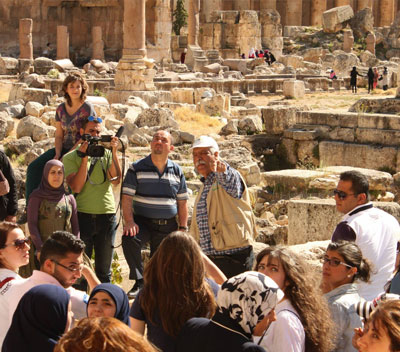Beirut is a segregated and overcrowded city with almost no public spaces.
One of them is Horsh Beirut, the largest park in the capital. It is located at the intersection of socially segregated neighborhoods: to its west side lies Sunni Tarik el-Jdideh & Qasqas; to its north, Christian Badaro and Mathaf; and to its south, Shiite Chiyah, with Sabra and Shatila refugee camps a few minutes away. During the civil war, Horsh Beirut was part of the demarcation line that divided Beirut into two conflicting zones, and in 1982, most of its trees were burnt down by Israeli airstrikes.
After the rehabilitation of the space in 1995 by the Municipality of Beirut with the support of the “Conseil Regional D’Ile-De-France,” the park remained closed to the public. Even more outrageous, it was only accessible to western foreigners. In response, NAHNOO organized in 2010 the “Reopen Horsh Beirut” advocacy campaign, forming a coalition with other concerned NGOs and proposing a researched “Roadmap to Reopen Horsh Beirut” to the Municipality.
After five years of sustained campaigning and awareness-raising, the park opened to all in 2015. However, challenges remained regarding the management & infrastructure of the place, threats of constructions on its land, and the non-inclusive accessibility, e.g., the construction of a fence separating the Qasqas side of the park (low-income) from the rest of the space. Therefore, NAHNOO pursued advocacy efforts under the current “Horsh Beirut for All” campaign, proposing an alternative vision linking the park with the neighborhoods surrounding it.
Campaign Objectives
- Reopen Horsh Beirut park to the public with inclusive access
- Promote the activation and access of the park for all
- Raise awareness on the importance of Horsh Beirut as a major public space in Beirut
- Protect the land of Horsh Beirut by reclaiming public accessibility and connection of Horsh Beirut park with its neighborhoods








